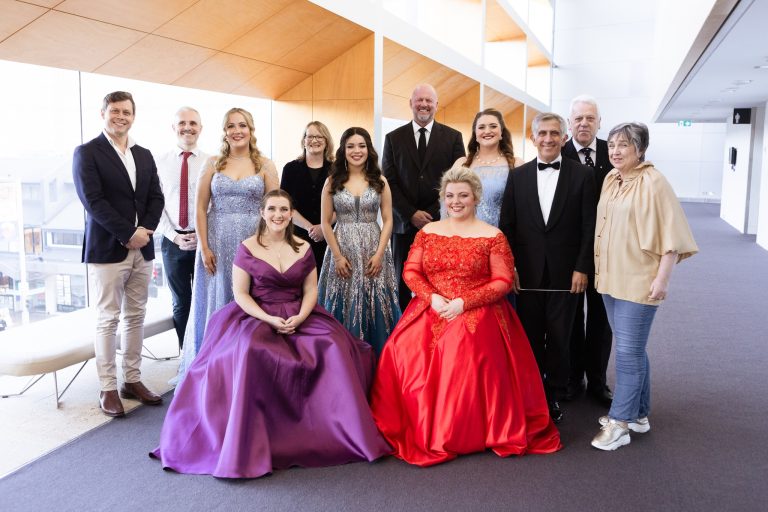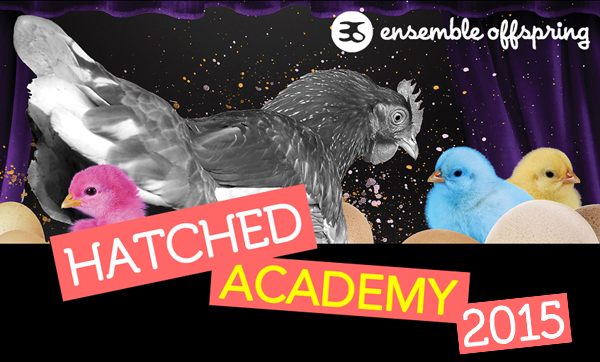What’s Next For the Arts? Musica Viva Examines The Road Ahead

One hundred days of lockdown, budget cuts, end-of-financial-year donation drives tinged with an added note of passion and a desperately uncertain future for the performing arts. It was against this stark backdrop that Musica Viva Australia grasped the helm and convened a webinar, What’s Next for the Arts? anchored by its CEO, Hywel Sims, with Musica Viva Artistic Director, Paul Kildea, Adelaide Festival’s Executive Director and former CEO of Sydney’s City Recital Hall, Elaine Chia and writer, director and Artistic Director of the Sydney Festival, Wesley Enoch AM.
What IS next for the arts? Despite being painfully disregarded in government welfare packages and considered somehow less worthy of support, it is the arts that have kept us intact in heart, soul and mind, through the lockdown, from watching a play online alone in a dimmed sitting room, a movie with friends complete with choc-tops and pop-corn, an online opera, concert or band. The arts reflect our civilisation and define us as humans. They permeate all facets of life, past, present and future.
Mid-March was the last time that most of us experienced a live concert. Musica Viva was able to present just one tour this year before blanket cancellations of all live performances. However, in adversity lies opportunity and the creatives agreed that this hiatus which Wesley Enoch labelled “The Great Pause,” has tossed up several observations and opportunities. “It has been a time to rethink and replan on the big cultural conversations required and how we have them” he added. For Paul Kildea, this time has been a chance to “talk, read, think and listen, after years of living away… a wonderful corrective.”
Domestic and international border closures and fluctuating currencies have dictated that there will be many more Australian artists performing in Australia during the next few years. Kildea acknowledges “We have the best people in the world here – we will all grow.” Capitalising on this pool of domestic talent, Enoch says “the community needs to hear our stories and the artist’s view of the world that is as close to the community as you can get.” Elaine Chia agrees that the Adelaide Festival, which has traditionally offered a large international line-up, will now feature more Australian content. Therein lies one leaf of the silver lining – more Australian content and more work for Australian performers.
There would be scarcely a music lover who doesn’t miss the thrill of the live performance. It is our instinct to gather and the performing arts brings us together to share an experience in a single place. The joy of meeting friends at a concert, planned or accidental, the collective gasps, laughs and elation; debating the performance at interval drinks; the sense of something special and being uplifted – these are integral elements of the concert experience. Enter, the digital concert hall. The lockdown has seen the internet flooded with online content, free and paid, both whole works and excerpts. Musicians have performed from home studios, empty concert halls and outdoor spaces; virtual choirs have gathered in pixelated form. Although the online experience is hardly equivalent to the live one, it has potential to attract audiences with limited accessibility, be it regional or physical. The community has begun to share experiences in novel ways, and in some ways, says Enoch, are more connected than ever, which is antithetical to the concept of isolation and distancing. Another leaf in the silver lining.
As for free content – it is a fine line between keeping patrons and subscribers engaged and devaluing the art. Much of the free content online is short-form, is password protected for subscribers or a teaser to graduate from “Freemium to Premium” – thank you Wesley Enoch! He adds that free content jeopardises artist development and adds to artist invisibility, a point underscored by Elaine Chia.
The creatives agreed that trust is central to rebuilding the performing arts – trust in concert organisation as well as in artistic planning. We might welcome the end of the constant cougher in the audience, but distancing needs to be maintained between performers and audiences and staff; spaces need to be meticulously cleaned; interval refreshments need to be rethought. These are practical considerations. Quantifiable, measurable and relatively easily accomplished. A greater challenge is to win the trust of the audience in programming and performers. Paul Kildea has served as artistic director in Aldeborough, the Wigmore Hall and the Four Winds Festival in southern NSW. He estimates that it takes 4 years to accumulate audience trust, adding “but that’s all changed now – that time isn’t there so we’re asking audiences to strap in and come on that journey.” Enoch concurs. “People will take risks because they trust the organisation. They think ‘I may not like everything but at least I’m going on the journey.’” He is emphatic that audiences are living, breathing individuals and cannot be treated as commercial units pointing out that the companies which have operated on a commercial model have not fared so well in this crisis. Their ethos “We’ll back only what we can sell rather than what’s right for the tribe” has resulted in an erosion of that business model over time. He recognises that engaging with younger audiences, especially through festivals, is critically important. It is a generation not to be lost. The diversity of the audience in terms of their demographics, age and place of birth, must be an important part of decision making along with meeting their sense of artistic adventure and curiosity, he adds.
And so, after weeks of risk management the creatives have turned their minds to programming options and fallbacks, maintaining morale and momentum, liaising with stakeholders and planning for the next year or two in a way that is sustainable for artists, organisations and audiences.
What’s Next for the Arts? There are very likely many more conversations to come. Can we look for certainty, reliability and quality? Trust the creatives and join the ride. Says Elaine Chia, “What the arts wants to say is critical. The arts face drastic budget cuts but it is not an excuse to not dream.”
Shamistha de Soysa for SoundsLikeSydney©





